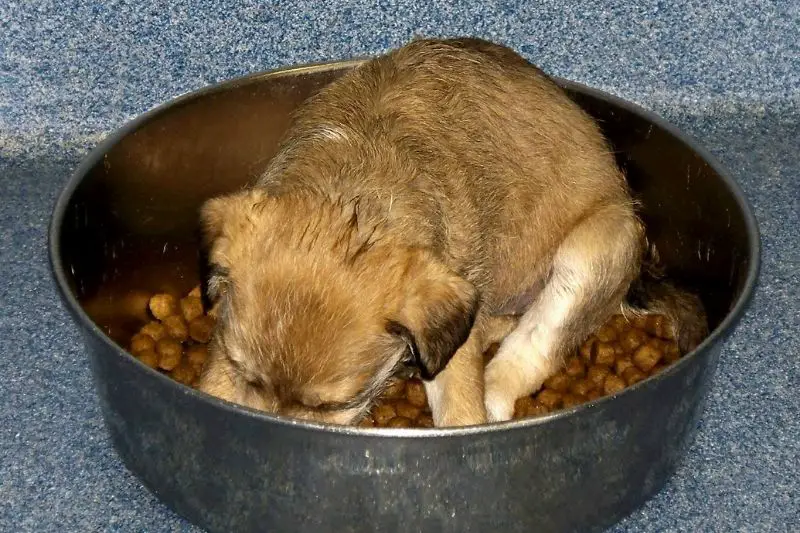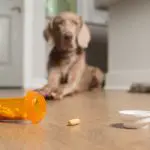Adopting a dog as a pet is a huge responsibility; there are tons of things to take care of. A puppy needs a lot of care and attention. One most important aspect is maintaining a balanced diet for your puppy. Because you can’t go wrong with food or it can cause some serious health issues.
Nutrition is a significant factor to consider in puppy care. It is essential to ensure that you provide your little puppy with all the required nutrients and minerals to facilitate the healthy growth of their mind and body. There are various things that you must take into notice while sorting the proper nutrition for your puppies. Let us get to understand a few.

Why is puppy nutrition important?
Puppies grow up quickly, and to ensure healthy growth, well-balanced nutrition and other factors are to be considered; with good understanding and caution. The puppy’s nutrition has to be carefully curated, including high amounts of proteins, fats, and certain minerals to help in growth and development.
Moreover, at different stages, the puppies have different feeding needs, for example, 2 to 3 months old: 4 meals a day, 3 to 6 months: 3 meals a day, etc. Hence it’s crucial to make the diet plans according to that too.
In the earlier stages, it’s important to make sure that the right amount of food gets into their tummy. The little puppies have a tendency to throw tantrums at you. Beware of their cuteness! Ensure that you figure out ways to make them eat.
Food habits are also highly dependent on the kind of breeds. Hence, it is essential to understand the dietary requirement of “your” pet to make decisions. You can always check with your veterinarian to help with the right choices.
Requirements for different stages
There are many things to consider while planning the nutrition plan for your puppy. Here are a few things to understand and consider in a diet for different stages in a puppy’s timeline. These are general options; hence according to the breed, make the final decisions.
One month old
At this stage, the puppy starts weaning from its mother’s milk. Hence transition to solid foods must be gradual and sufficient. Solid food can be made into soft forms by wetting with warm water initially to promote the eating habit.
Moreover, it is important to note that the food intake must help boost immunity and develop a healthy digestive system to process the food and utilize the energy required for growth.
Two to four months
At this stage, importance must be given to ensure the healthy growth of skeletal and dental structures. Hence, it’s important to have a diet rich in calcium, phosphorus, and vitamin D in fairly good amounts.
Four to seven months:
During this stage, the puppy starts building body mass and mostly loses the potbelly. It’s important to include high protein-rich foods in the diet to ensure development.
Ten months to 1 year:
Energy consumption is comparatively low as in earlier stages, so dietary changes are to be adjusted according to that. The nutritional supplements are to be kept in mind as the puppy is entering adulthood.
Related Posts
Few Components in Puppy Diet
Puppy Formula
In certain cases, the puppy might be devoid of its mother’s milk due to varying reasons. In those situations, puppy formula ensures that the young puppy gets the required nutrients. Moreover, there are different puppy formulas available in the market. It’s always best to consult with the professional while choosing.
Canned foods
Different brands offer different kinds of canned foods, which consists of the requirements of the puppies like meats or cereals in a more palatable form. It is important to understand that canned foods alone do not constitute a balanced diet.
Cooked food
If you want to feed your puppy some homemade food, then you can always try mixing some cooked meat and vegetables together. Puppies have delicate digestive systems; hence always keep in mind to avoid the use of food high in fatty matter,
Supplements
Sometimes your puppy might require supplements to help maintain the right levels of nutrients and minerals in the body in addition to the normal diet. Consumption of supplements must be based on consultation with the veterinary doctor. The unnecessary addition of supplements to the diet is more harmful than a deficiency.
Treats
Treats constitute about 10% of the puppy’s diet. These are more of a snacking component used especially during training as rewards. Many different kinds of treats are available today, and some of them have additional benefits like maintaining oral health, jaw strength, etc.
Raw food
This is one of the most essential and most preferred components in a puppy’s diet. Make sure to provide the right size of raw food to your puppies. Once they start teething, complete raw dog food helps keep them engaged with better jaw structure development. Though feeding bones are also sometimes preferred, keeping your puppy in sight while handling it to avoid any unfortunate events is important.
Water
Always ensure that your puppies have easy access to water upon their requirements. Keep the bowl clean and provide a lot of clean drinking water. This is
Things to avoid feeding your puppy
- Chocolates- It consists of certain substances that cause vomiting, diarrhea, etc. and in extreme cases, even death
- Citrus fruits- the citric acid present in fruits like lemon, orange, etc., cause irritation and even affect the various systems in the puppy’s body
- Cow Milk and dairy – CowMilk and dairy products are quite difficult to digest for puppies when consumed in considerable volumes. It causes diarrhea and digestive upset
- Salty foods – the presence of an excessive amount of salt in foods leads to increased thirst and urination. Moreover, it also causes diarrhea, vomiting, depression, seizures, and even death
Conclusion
Planning a balanced diet is successful only through an intensive understanding of the requirements of your puppy. Moreover, the amount of each component you provide is also important. Along with diet, also ensure that your puppy is engaged in different activities to improve mental and physical health. Have a nice time with your little healthy friend!






